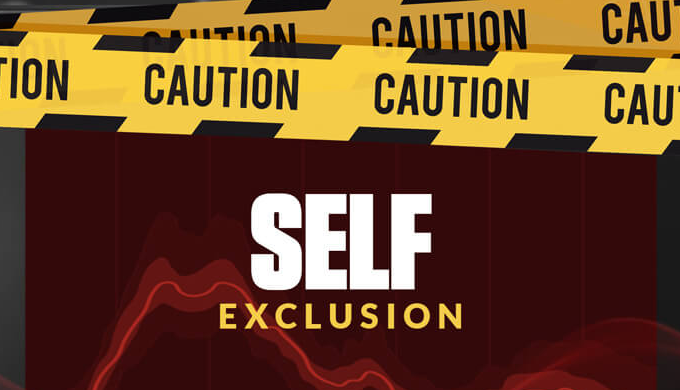Self-exclusion programs in casinos are designed to help individuals who struggle with problem gambling. These programs allow individuals to voluntarily ban themselves from entering a casino or participating in gambling activities for a specified period of time. The goal of self-exclusion programs is to provide a tool for individuals to take control of their gambling habits and seek help when needed.
Importance of Responsible Gambling
Responsible gambling is a key component of maintaining a safe and enjoyable gambling experience. It is important for individuals to be aware of their gambling habits and to seek help if they feel that their gambling is becoming problematic. Self-exclusion programs play a crucial role in promoting responsible gambling by providing individuals with the option to limit their access to casinos and gambling activities.
How Self-Exclusion Programs Work
Self-exclusion programs typically involve individuals signing a formal agreement with a casino or gambling establishment. Once the agreement is in place, the individual will be barred from entering the premises or participating in any gambling activities for a set period of time, ranging from a few months to several years. During this time, the individual will not be able to collect any winnings or participate in any promotions or events at the casino.
Understanding Casino Self-Exclusion Programs
When it comes to gambling, self-exclusion is a voluntary program that allows individuals to ban themselves from entering specific casinos or participating in certain forms of gambling. This program is designed to help individuals who may be struggling with gambling addiction to take control of their behavior and avoid the temptation of returning to the casino.
Implementation in Casinos
Casinos typically have a formal self-exclusion program in place that allows individuals to sign up and voluntarily ban themselves from the premises. Once enrolled, the individual’s information is entered into a database, and security personnel are trained to recognize and prevent their entry into the casino. Additionally, individuals who have self-excluded may receive support resources and counseling services to help them overcome their addiction.
Types of Self-Exclusion Programs
- Temporary Self-Exclusion: This type of program allows individuals to ban themselves from the casino for a specified period, such as six months or one year.
- Permanent Self-Exclusion: Individuals who choose this option are banned from the casino indefinitely and must seek permission to be removed from the self-exclusion list.
- Statewide Self-Exclusion: Some states offer programs that allow individuals to self-exclude from all casinos within the state, not just one specific establishment.
Benefits of Participating
Participating in a self-exclusion program can have numerous benefits for individuals struggling with gambling addiction. By voluntarily banning themselves from the casino, individuals can break the cycle of addiction and begin to seek help for their problem. Additionally, self-exclusion programs provide a safe and supportive environment for individuals to address their gambling behaviors and work towards recovery.
How to Enroll in a Casino Self-Exclusion Program
Enrolling in a casino self-exclusion program is a straightforward process that can help individuals struggling with gambling addiction to restrict their access to casinos. Here is a step-by-step guide on how to self-exclude from a casino:
- Contact the casino’s responsible gambling team or self-exclusion program coordinator.
- Request information on the self-exclusion program and the steps to enroll.
- Fill out the necessary forms provided by the casino, including personal information and duration of self-exclusion.
- Submit the completed forms to the responsible gambling team or coordinator.
- Attend any required meetings or counseling sessions as part of the self-exclusion program.
Requirements and Eligibility Criteria
Before enrolling in a self-exclusion program, it is important to understand the requirements and eligibility criteria. Typically, individuals must meet the following criteria to be eligible for enrollment:
- Must be of legal gambling age in the jurisdiction.
- Must demonstrate a desire to control or stop their gambling behavior.
- Must not have any pending legal issues with the casino.
Duration of Self-Exclusion and Options for Extensions
The duration of self-exclusion can vary depending on the casino and the individual’s preferences. In general, self-exclusion periods can range from six months to several years. Some casinos also offer the option to extend the self-exclusion period if needed.
Extensions can be requested by contacting the responsible gambling team or coordinator and providing a valid reason for the extension. It is important to follow the casino’s guidelines and procedures for extending a self-exclusion period to ensure continued support and assistance.
FAQs on Casino Self-Exclusion Programs
1. What is a self-exclusion program?
A self-exclusion program allows individuals to voluntarily ban themselves from entering a casino or participating in gambling activities at a specified period.
2. How long does a self-exclusion last?
The duration of self-exclusion can vary depending on the casino and the individual’s choice, but typically ranges from 6 months to 5 years.
3. Can I reverse a self-exclusion?
In most cases, self-exclusion agreements are irrevocable. It is essential to carefully consider the decision before enrolling in a self-exclusion program.
Pros and Cons of Casino Self-Exclusion Programs
When it comes to addressing issues with problem gambling, casino self-exclusion programs can be a valuable tool. Here are some of the pros and cons to consider:
Pros:
- Helps individuals control their gambling habits
- Provides a supportive environment for problem gamblers
- Demonstrates a commitment to responsible gambling practices
Cons:
- Limited effectiveness for individuals with severe gambling addiction
- Potential social stigma associated with self-excluding from casinos
- Lack of universal standards and regulations for self-exclusion programs
Conclusion
Self-exclusion programs play a crucial role in promoting responsible gambling practices within the casino industry. By allowing individuals to voluntarily ban themselves from casinos, these programs help prevent problem gambling behaviors and provide a safety net for those struggling with addiction.
If you or someone you know is facing challenges with gambling addiction, it is important to seek help. Whether it is through counseling, support groups, or treatment programs, there are resources available to assist in overcoming this issue.


